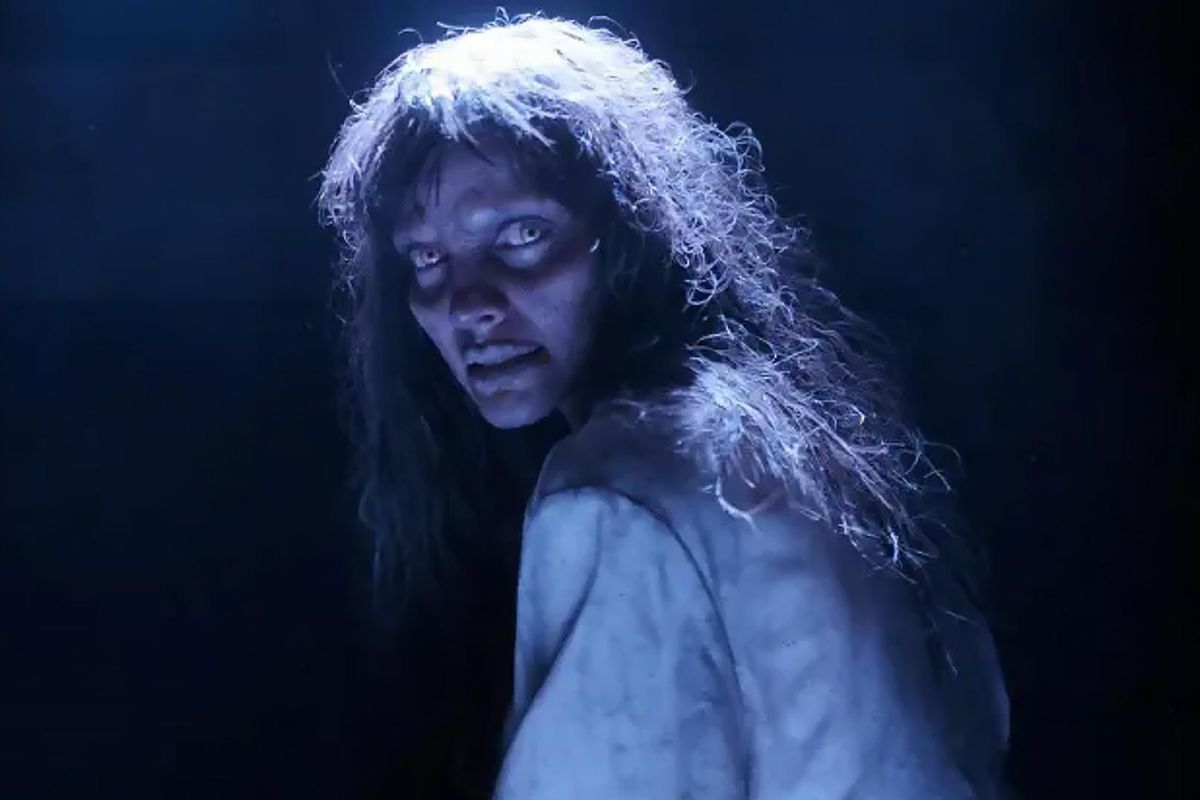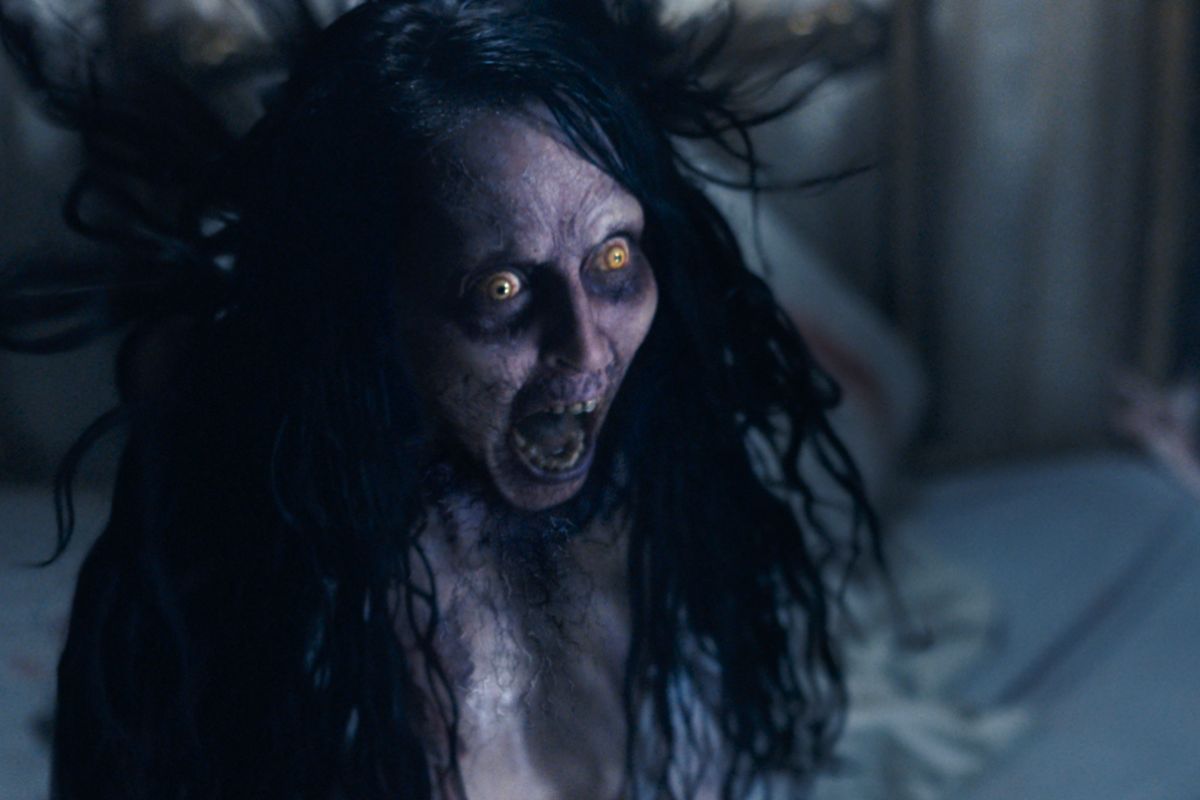When handed the opportunity to review a movie titled “The Exorcism of God,” skepticism naturally takes the reins. Such a title, one might assume, belongs in the realms of bargain bins or on the front pages of free movie apps.
Low expectations accompany such titles, often associated with indie films fraught with cheap CGI, subpar acting, and technical glitches. However, in the case of “The Exorcism of God,” the film defies these presumptions right from the outset.
A Dark Prelude
The narrative kicks off with Father Peter Williams (played by Will Beinbrick of “It: Chapter Two”), standing before the residence of a possessed young girl (Irán Castillo). A subtle nod to “The Exorcist” sets the tone, but director Alejandro Hidalgo masterfully handles this homage. Prior to the opening exorcism, Father Peter receives a call from Father Michael Lewis (Joseph Marcell of “The Fresh Prince of Bel-Air”), urging him to refrain until absolved of sin.
The ensuing moments offer a glimpse into the impending supernatural struggle beneath the watchful gaze of a holy camera.
Visual Spectacle and Unsettling Realism
The film immediately captivates with remarkable makeup, visual effects, cinematography, and compelling performances. Beinbrick and the cast skillfully navigate a whirlwind introduction, infusing psychosexual elements that humanize priests, challenging the perception of their inherent sanctity.
Despite the discomfort stemming from my Catholic upbringing, I found myself drawn to the film’s unapologetically dark tone, transcending the conventional boundaries of religious cinema.
Unveiling the Aftermath
Fast forward eighteen years, and Father Peter has become a pillar of the Mexican community, hailed as a saint. The resurgence of a demonic outbreak, affecting children, thrusts him back into a haunting past.
The reunion with the possessed girl, now a mother named Esperanza (María Gabriela de Faría), exposes a daughter tormented by the same demonic force. Old wounds resurface, and Father Peter grapples with his past sins and faith, seeking redemption for actions veiled in secrecy.

Unforgettable Encounters
In one of the film’s standout scenes, Father Peter confronts a possessed Jesus within the confines of his church. The shocking encounter not only elicits a visceral response but also introduces a daring narrative twist.
Could demons infiltrate even the holiest figures? The film strategically employs moments like these, blending horror with originality, leaving an indelible mark on the viewer.
Navigating Controversy and the Supernatural
While “The Exorcism of God” is not without its share of controversial elements, the possessed Jesus subplot stands out as a daring choice rather than a problematic one. The narrative delves into the complexities of a priest’s tormented existence and challenges the audience to reconcile divine actions with personal transgressions.
The film skillfully weaves a tale of demonic manifestations, from a doll-headed demon stalking nurses to a legion of possessed individuals in a psychiatric ward.
A Satirical Take on Religion
The film, at its core, serves as a satirical exploration of religion, particularly the priesthood and institutional practices. “The Exorcism of God” fearlessly confronts traditional notions and sheds light on institutional tactics that may compromise the very values they claim to uphold. The narrative dares to question the sanctity of religious figures and the systems that harbor them.
Questionable Endings and Uncomfortable Truths
As the film concludes, a particular moment raises eyebrows. The script includes a homophobic line, aligning with the traditional stance of the Catholic Church. While this adds another layer to the film’s institutional critique, it leaves a bitter aftertaste.
The film’s ending, doubling down on this sentiment, further complicates the narrative, prompting reflection on the boundaries between artistic expression and perpetuating harmful ideologies.
The Lingering Ambiguity
Contemplating “The Exorcism of God” leaves me somewhat uncertain. Despite enjoying the chaotic brilliance of Hidalgo’s direction, the concluding moments cast a shadow. The film’s exploration of institutional ugliness takes a morally questionable turn, challenging viewers to grapple with uncomfortable truths.
The clash between the film’s entertainment value and the potential reinforcement of harmful ideologies underscores the complexity of cinematic storytelling.
Food for Thought in Troubled Times
As the film graces VOD on March 11, it prompts contemplation in a world grappling with societal shifts and legal debates. The alignment of the film’s narrative with contemporary issues, especially regarding LGBTQ+ rights, adds a layer of urgency to the discussion. In a landscape where religion is wielded unjustly, both in Mexico and resonating with recent events in certain U.S. states, “The Exorcism of God” serves as a mirror reflecting the consequences of blind adherence to flawed causes.
The Exorcism of God compels audiences to question not only the supernatural but also the real-world implications of institutional practices. Hidalgo’s film, while a rollercoaster of horror and satire, invites viewers to confront uncomfortable truths lurking within the shadows of religious structures. As the credits roll, the lingering uncertainty surrounding the film serves as a testament to its ability to provoke thought and spark discussions that extend beyond the boundaries of the screen.

